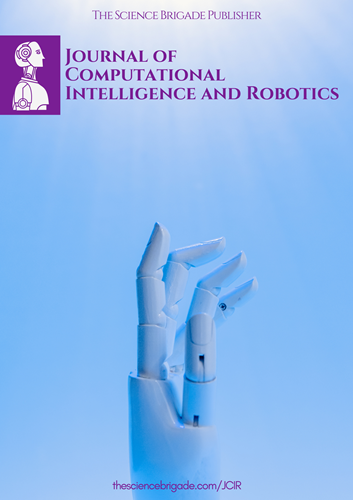AI-Driven Solutions for Enhancing Data Flow to Common Platforms in Healthcare: Techniques, Standards, and Best Practices
Keywords:
artificial intelligence, data flow, machine learning, healthcare interoperabilityAbstract
In recent years, the integration of artificial intelligence (AI) into healthcare has emerged as a pivotal factor in enhancing data flow and interoperability across common platforms. This research paper investigates AI-driven solutions designed to optimize data exchange and ensure seamless integration within healthcare systems. The focus is on elucidating the various AI techniques, adherence to standards, and best practices that are essential for achieving effective data flow and interoperability.
The healthcare sector grapples with significant challenges related to data silos, disparate systems, and varying standards that impede the efficient exchange of health information. AI has the potential to address these challenges by providing advanced tools and methodologies for data integration and management. This paper explores key AI techniques such as machine learning, natural language processing, and data mining, which facilitate the extraction, transformation, and integration of health data from heterogeneous sources. The application of these techniques in the context of healthcare interoperability is critically examined to highlight their contributions to improving data flow.
Standards and protocols play a crucial role in enabling interoperability among diverse healthcare systems. This research delves into established standards such as Health Level Seven International (HL7), Fast Healthcare Interoperability Resources (FHIR), and Digital Imaging and Communications in Medicine (DICOM). The alignment of AI technologies with these standards is assessed to ensure that AI solutions can operate effectively within the existing framework of healthcare data exchange. Additionally, the paper discusses the challenges and limitations associated with the implementation of these standards and proposes strategies to overcome these barriers.
Best practices for leveraging AI in enhancing data flow are also presented. These practices encompass data governance, privacy considerations, and the integration of AI systems with existing healthcare infrastructure. The paper emphasizes the importance of adopting a holistic approach that integrates AI technologies with established protocols while adhering to data protection regulations such as the Health Insurance Portability and Accountability Act (HIPAA). Case studies illustrating successful AI implementations in healthcare are included to provide practical insights into the real-world application of these solutions.
The research underscores the significance of continuous advancements in AI technologies and their alignment with healthcare standards to foster improved data interoperability. By presenting a comprehensive analysis of AI-driven techniques, standards, and best practices, this paper aims to contribute to the development of effective strategies for enhancing data flow within healthcare systems. The findings of this study are expected to inform healthcare practitioners, policy makers, and technology developers about the potential of AI to transform data exchange processes and improve the quality of care through seamless integration and interoperability.
Downloads
Downloads
Published
Issue
Section
License

This work is licensed under a Creative Commons Attribution-NonCommercial-ShareAlike 4.0 International License.
License Terms
Ownership and Licensing:
Authors of this research paper submitted to the journal owned and operated by The Science Brigade Group retain the copyright of their work while granting the journal certain rights. Authors maintain ownership of the copyright and have granted the journal a right of first publication. Simultaneously, authors agreed to license their research papers under the Creative Commons Attribution-NonCommercial-ShareAlike 4.0 International (CC BY-NC-SA 4.0) License.
License Permissions:
Under the CC BY-NC-SA 4.0 License, others are permitted to share and adapt the work, as long as proper attribution is given to the authors and acknowledgement is made of the initial publication in the Journal. This license allows for the broad dissemination and utilization of research papers.
Additional Distribution Arrangements:
Authors are free to enter into separate contractual arrangements for the non-exclusive distribution of the journal's published version of the work. This may include posting the work to institutional repositories, publishing it in journals or books, or other forms of dissemination. In such cases, authors are requested to acknowledge the initial publication of the work in this Journal.
Online Posting:
Authors are encouraged to share their work online, including in institutional repositories, disciplinary repositories, or on their personal websites. This permission applies both prior to and during the submission process to the Journal. Online sharing enhances the visibility and accessibility of the research papers.
Responsibility and Liability:
Authors are responsible for ensuring that their research papers do not infringe upon the copyright, privacy, or other rights of any third party. The Science Brigade Publishers disclaim any liability or responsibility for any copyright infringement or violation of third-party rights in the research papers.




